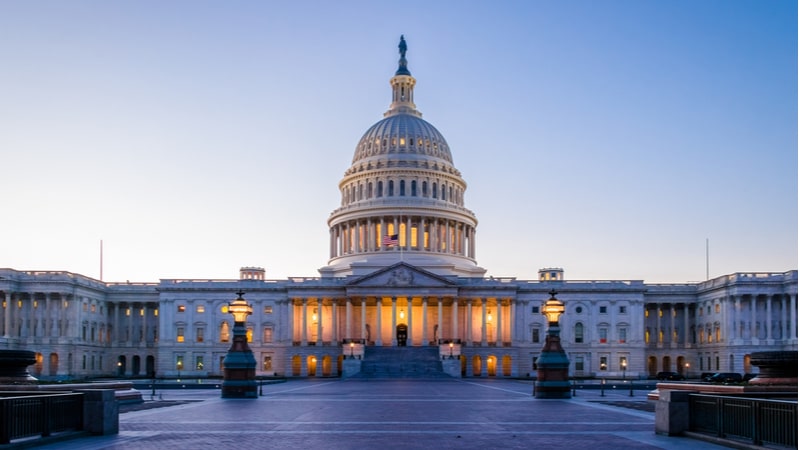
The increasing prevalence of data localization laws around the world drew several angles of criticism at a Sept. 20 House Ways and Means subcommittee hearing, and a call from some witnesses for the U.S. to press harder for international leadership in technology laws and policy.
Data localization laws may require that citizen data be collected, processed, and stored within the country of origin, and may impose restrictions or conditions on transferring that data across borders.
“Our status as an innovation powerhouse is under threat,” said subcommittee Chair Jason Smith, R-Mo., during opening statements for the hearing on digital trade rules, where he argued for enforcing strong digital trade rules.
“In recent years, our strategic and economic rivals have sought to erode America’s competitive edge through a series of discriminatory digital trade and tax measures targeting American companies, there is no question this is contrary to our national interest,” Rep. Smith said.
In October 2023, the Biden Administration abandoned long-held U.S. positions on digital trade during World Trade Organization (WTO) negotiations on e-commerce. The decision to withdraw the Trump-era proposals – which insisted that the WTO e-commerce rules allow free data flows and prohibit requirements data localization and source code reviews – was made to give Congress room to regulate big tech firms, U.S. Trade Representative Katherine Tai’s office said last year.
At the Sept. 20 hearing, Ranking Member Earl Blumenauer, D-Ore., called for a balanced approach in digital trade regulations.
“While the digital economy has created new opportunities and transformed certain industries, it’s raised significant modern challenges,” said Blumenauer. “On the one hand, we must create conditions for companies to innovate, and yet, on the other hand, we must ensure the ability of governments to regulate the digital economy, especially with respect to personal data.”
Witnessed at the hearing cautioned about the use of data localization laws in ways that help foreign governments create more authoritarian regimes.
“Data localization laws are often used to force companies to comply with local security agencies, including to censor nonviolent political, social and religious speech and to hand over personal data,” said Adrian Shahbaz, the vice president of research and analysis for Freedom House.
“If global norms shift further away from freedom and openness, there is a risk that data localization laws will proliferate,” Shahbaz said. “Companies in authoritarian countries will face increased demands to comply with human rights abuses, and billions of people around the world will become less free.”
Eric Gottwald, a policy specialist on trade and economic globalization at AFL-CIO, pointed out that creating bans on data localization could undermine efforts to protect sensitive data.
“Congress must be free to act to protect America’s Americans data privacy and advance our economic and national security interests, even if those measures happen to restrict open global data flows,” said Gottwald.
“Congress must preserve the ability of regulators to meaningfully oversee the use of artificial intelligence management software in the workplace to ensure that it is consistent with our current labor and employment laws, and we must enact new laws to address emerging issues such as electronic workplace surveillance and the erosion of digital privacy,” he continued.
